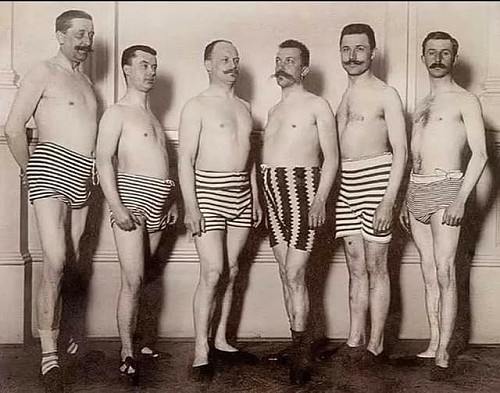Breaking Free from Trends: Loving Your Body as It Is
In every era, society dictates what the “ideal” body should look like. From the voluptuous curves celebrated in the Renaissance to the waif-like frames idolized in the 90s (which seem to be on the rise again thanks largely in part to Ozempic), body trends have shifted like fashion seasons. Check out this great photo of a men’s beauty competition in 1919 as a perfect example of how body ideals have changed!

Our obsession with social media just amplifies this trend in our bodies. But here’s the truth: your body isn’t a trend, and it shouldn’t be treated as one.
As a hypnotherapist, I often meet individuals carrying the weight of unrealistic expectations about their bodies. These expectations, deeply rooted in societal pressures, lead to feelings of inadequacy and self-doubt that have often been lingering around since childhood. That well-meaning (and sometimes not!) comment from a family member can really stick with you!
Why Body Trends Are Harmful
Body trends send a harmful message: that your body is only worthy of love and acceptance if it fits what’s currently “in.” This idea is unhelpful for several reasons:
- Unattainable Standards: Many trends are simply unachievable for the majority of people. We are genetically predisposed to look a certain way. Expecting everyone to look the same ignores the amazing diversity we are surrounded by.
- Constant Pressure to Change: When body ideals shift, people feel pressured to adapt, often resorting to extreme diets, unsafe cosmetic procedures, or intense workout regimens that aren’t sustainable or healthy.
- Erosion of Self-Worth: When you’re chasing trends, it’s easy to fall into the trap of believing you’ll only be “enough” when you reach a certain size or shape or that if the scales read a certain number, you’ll finally be happy. This mindset erodes your self-esteem and prevents you from appreciating the miracle of the body you have right now.
Learning to Love Yourself
Loving your body doesn’t mean that you will love every single thing about it all the time, it’s about gratitude for this amazing vessel that’s carrying you around. Here’s a few tips:
- Surround yourself with positive role models – Look carefully at who you are following on social media and what their message to you is. Seek out body positive ambassadors.
- Practice gratitude for your body – ask yourself every day something you are grateful for your body for. Perhaps it was running for the bus, eating that delicious meal or getting you through that tough day.
- Self-care is not selfish! Make sure you are getting enough sleep, enough daylight, eating foods that nourish you and move in a way that feels good for you whether that’s golf, gardening or dancing round the kitchen!
Flaws Are Part of Your Story
Every scar, stretch mark, wrinkle, and imperfection tells a story about your life. They’re not flaws; they’re features that make you uniquely you. When you embrace these aspects of yourself, you send a powerful message to the world: that beauty isn’t about fitting into a box, but about authenticity and self-acceptance.
Hypnotherapy: A Path to Self-Acceptance
Hypnotherapy is a powerful tool for shifting negative thought patterns and fostering self-love. With hypnotherapy you can:
- Reconnect with your body and learn to love it.
- Release the grip of the pressure of society, social media and dieting.
- Make positive changes to your lifestyle so that you feel healthier and fitter.
- Build a foundation of confidence and self-worth that isn’t tied to your appearance.
Your Body, Your Journey
The journey to loving your body is deeply personal, and it’s okay if it takes time. Start by acknowledging that trends will come and go, but your body is here to stay. By accepting and nurturing it—just as it is—you’re taking a stand against the harmful culture of comparison. And most importantly, you’re reclaiming your right to love yourself fully, flaws and all.









